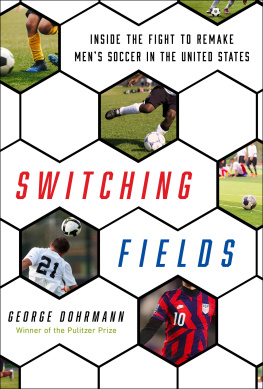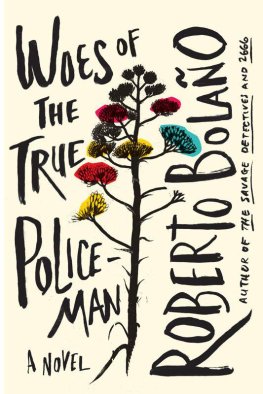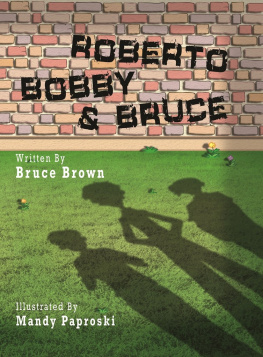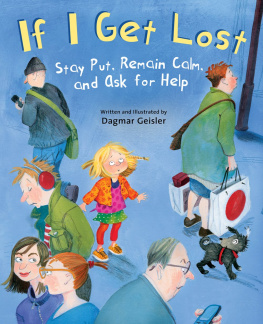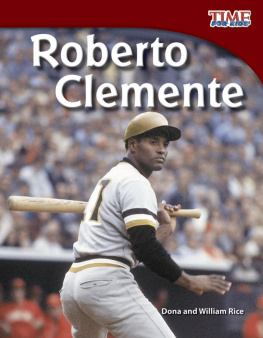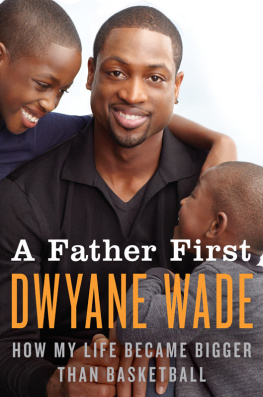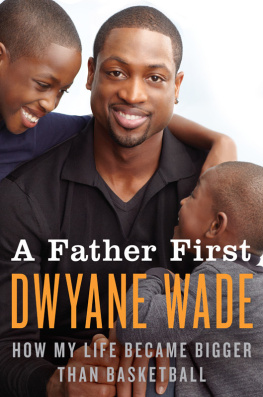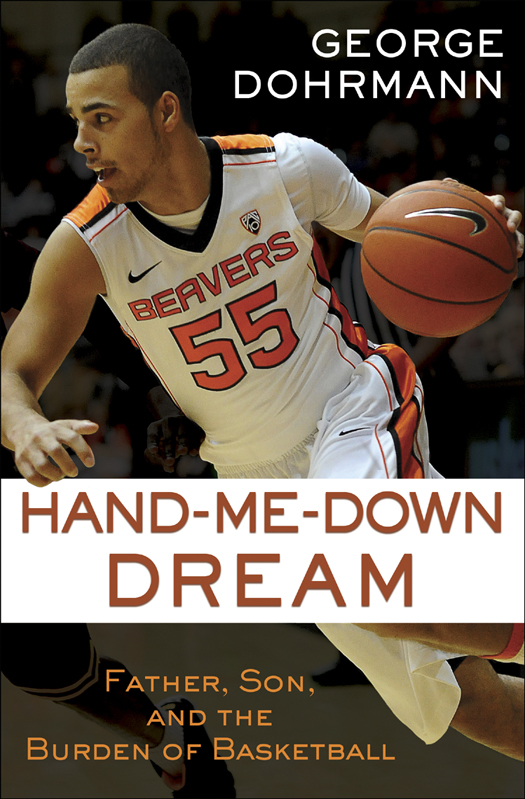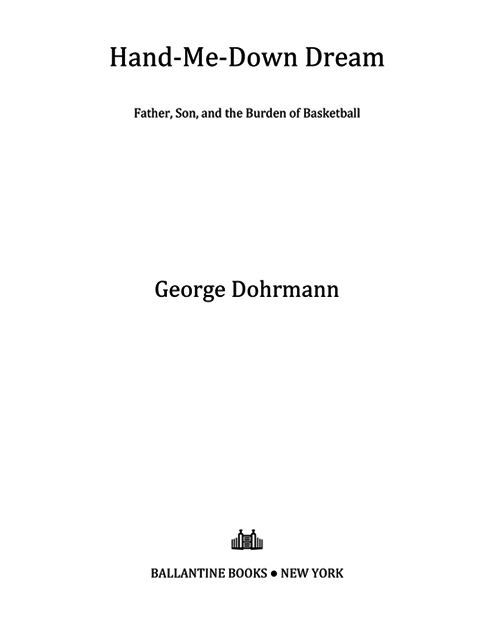ALSO BY GEORGE DOHRMANN
Play Their Hearts Out: A Coach, His Star Recruit, and the Youth Basketball Machine
A Ballantine Books eBook Original
Copyright 2012 by George Dohrmann
Excerpt from Play Their Hearts Out 2010 by George Dohrmann
All rights reserved.
Published in the United States by Ballantine Books, an imprint of The Random House Publishing Group, a division of Random House, Inc., New York.
B ALLANTINE and colophon are registered trademarks of Random House, Inc.
eISBN: 978-0-345-53012-7
Cover design: David Stevenson
Cover photograph: Scobel Wiggins
www.ballantinebooks.com
v3.1
Contents
On the eve of the verdict, Bruce Nelson sat on the couch in the living room of his apartment, unable to sleep. His ex-wife had given him some of her Xanax, but even that didnt relax him. So he spent several hours sitting there in the dark.
Foremost in his thoughts was his son, Roberto, a junior at Santa Barbara (California) High School. For almost seventeen years, Bruces total focus had been on ushering Roberto toward a basketball scholarship to a Division I university and then, with some measure of good fortune, on to the NBA. Bruce had failed in his own pursuit of hoops stardom, and like many unfulfilled former athletes he foisted his dream onto his son. Everything in Bruces life, including the criminal charges against him, was framed by that dream. If found guilty on all counts, Bruce could be sentenced to life in prison, yet even that was a secondary concern, less important than how the outcome of his trial would affect Robertos basketball career.
Were so close with this basketball thing, he said. If this doesnt happen for Roberto because of me, well He couldnt finish the sentence; it was just too horrible.
Roberto had developed into one of the better guards in the country, and numerous colleges, including Florida, Ohio State, and UCLA, had shown interest in him. But Bruces trial, which began in March 2008, came at a crucial moment. Each spring and summer, college coaches scouted players at tournaments and camps across the country. Known as the Amateur Athletic Union seasonor, by others, as the grassroots seasonit was the most important time of the year for prospects like Roberto, and Bruce could ill-afford to have him distracted. Even worse, an unfavorable verdict might lead Roberto to skip the grassroots season altogether to be with his father before sentencing.
Sitting there in the dark, that is what Bruce thought about: how the crumbling of his life might lead Roberto away from the game.
At around 4:00 a.m., less than twelve hours before he would drive to the Santa Barbara County Courthouse, Bruce got up from the couch and paced the apartment for several minutes before ending up in the doorway of Robertos room. Bruce often peered in on Roberto on the nights when he couldnt sleep; he would stand and watch his boys body rise and fall with breath. Bruce was there only a moment before Roberto stirred.
Hey, Dad, I see you, he said.
Sorry, son. I didnt mean to wake you.
Its okay. Ive been awake.
Bruce walked to Robertos bed and Roberto slid over and Bruce lay down next to him. He wrapped his left arm over his son and told him he loved him and then Bruce began to sob, and Roberto remained silent as his father cried himself to sleep.
* * *
Calling them father and son never seemed accurate. The order was wrong. Roberto came first, and he was all that mattered, so much so that the son usurped the father and became the head of their unusual family.
On the surface, Bruce filled the paternal role. He worked three jobs, including part-time as an assistant coach for the basketball team at Santa Barbara High. He monitored Robertos grades and he occasionally disciplined his son, although one got the sense that Roberto agreed to be punished only for the sake of appearances. Bruce was merely the titular head of the family, and his happiness was so bound to Robertos basketball career that it gave the son enormous power while also saddling him with an unfair burden.
My dad, you know, Im all hes got, Roberto said. I need him. I do. But he needs me more. You know what Im saying? Its like Im all hes got, and so I gotta make sure hes okay.
I first met Roberto when he was twelve years old, when he joined a Southern Californiabased AAU team I was following for my first book, Play Their Hearts Out. He was more mature than the other boys on the team, on the court and off, and as I got to know Bruce, as I witnessed his dedication to his son, Roberto stood out even more. Many of the boys were hampered by a lack of guidance, typically the absence of strong male figures in their lives. Not Roberto. Bruce had his faults, but his presence seemed to ensure that the pitfalls that claimed many talented kids would not ensnare Roberto.
They were, in a sense, saving each other. Bruce shielded his son from those at the youth basketball level who exploited kids for financial gain. Roberto gave his fathers life a purpose. Or at least that was the story line I wrote in my head. I had collected so many stories of talented kids who had failed, and I was looking for a counterbalance. Roberto was to be my success story.
But then, suddenly, it all went bad.
I never accounted for the possibility that Bruce would become the greatest threat to Robertos future, nor could I have predicted the extreme adversity Roberto would eventually face. Roberto would drift from the game and the course Bruce had charted for him. It became easy to imagine Roberto one day passing his own unrealized hoop dreams down to his son.
Roberto was set to fail, but then, at the moment when his situation was most dire, he flipped the story again.
His recovery runs contrary to what we have come to understand about elite athletes. The pool from which the best players are typically drawn is made up of kids who from a young age are taught that nothing but their sport matters. It makes it difficult for them to look beyond the game. If they fail at sports, it is a good bet they will fail in life.
Not Roberto. It took losing his father and losing basketball; it took a coach who showed him a life beyond sports; it took a single game that he knew his team could not win. But his future would turn bright again as he found a new way to measure his worth, a new way to define success.
* * *
Bruce was a tall, gloomy man, with deep, sad eyes. His failings as a player and then his inability to land a head-coaching job at one of the areas high schoolsmostly because he did not have the required teaching credentialweighed on him mentally and even physically. He walked hunched over and had pain in his legs, and he appeared much older than his fifty-five years.
Robertos rise as a player and the attention it brought his father by association brightened Bruces mood, but his happiness was so tethered to the dream that there were few things he couldnt view as a threat. He worried about Robertos decision to also play football (What if he gets injured?) and how he practiced with the golf team (That is time he should be in the gym). In general, Bruce griped because Roberto didnt live and breathe basketball. Bruce almost never missed a Los Angeles Lakers game on television and watched college games on ESPN late into the night. He read many of the recruiting letters that came to the apartment, and he talked with any coach who called the house, even those from universities that Roberto was not considering, like Utah and Clemson.


